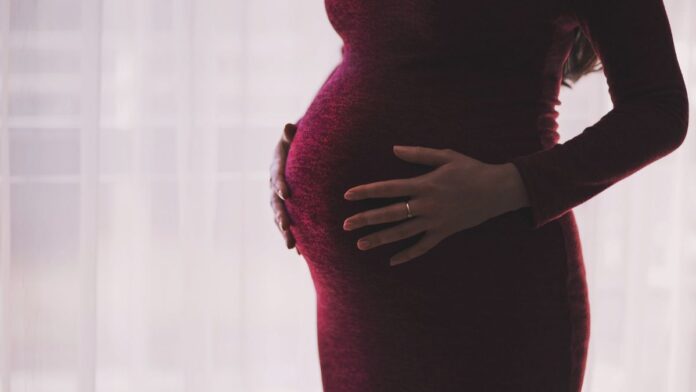Debating whether or not to get the COVID-19 vaccine during pregnancy? Scientists have uncovered the answer and the consensus is clear. Skipping the COVID-19 vaccine while pregnant is worse than being vaccinated. Swedish and Norwegian scientists leveraged national data to analyze live births of babies born between January 2021 and April 2022. The public health researchers dove into the effects of the COVID-19 vaccine on newborns and whether it was safe. Turns out, women who received the mRNA vaccines had healthier babies.
The study, published in JAMA, found that birthing parents who got the COVID-19 mRNA shot while pregnant, delivered healthy kids with fewer complications.1 Newborns with vaccinated mothers were less likely to have brain bleeds, oxygen-related brain injuries, or to die.
In the early days of COVID-19 vaccine distribution, the US Food and Drug Administration and the European Medicines Agency received reports of birth defects in babies born to mothers who received mRNA vaccines. The reported side effects included bleeding disorders, immune reactions, inflammation and even death.2 But the Stockholm researchers did not find any evidence that the mRNA COVID-19 vaccine injured unborn children. In fact, babies with vaccinated moms were on average, healthier than kids with unvaccinated moms.
The science behind the safety
The research group followed nearly 200,000 newborns conceived between January 1st, 2021 and April 12, 2022, about half of whom were exposed to the vaccine in utero.
The women included in the study received the mRNA vaccine at 22 weeks or later. Thanks to the huge number of participants, the researchers could easily match women with similar backgrounds. They carefully grouped the women by age, education, whether they smoked, and where they were born. This way, the difference between the two groups was whether or not they had been vaccinated, giving clear insights into the vaccine’s effects.
Records were pulled from the Swedish Pregnancy Register, the Swedish Neonatal Quality Register, the National vaccination Register in Sweden, and the Swedish Register for Communicable Diseases. They also dug into data from the Norwegian Surveillance System for Communicable Disease and Statistics Norway.
To determine the health of newborns from vaccinated and unvaccinated mothers during pregnancy, they adjusted for various factors like age, education, and pregnancy complications to ensure a fair comparison. Although some mothers caught COVID-19, the study accounted for these cases, offering a clear view of the vaccine’s safety during pregnancy.
What did they find?
Children born to vaccinated mothers were less likely to be premature, very small, experience brain bleeds, die within 28 days of birth, or experience oxygen deprivation. Instead, they were more likely to have a better APGAR score, which is an overall assessment of a baby’s health immediately after delivery.
These results show that fears about the COVID-19 vaccine harming the fetus are unfounded. Getting vaccinated while pregnant is safe.
By avoiding catching COVID-19, vaccinated mothers ensured that they were giving their child the best chance of a healthy birth.
Researchers found no link between a mother’s vaccination status and heart complications or other inflammatory conditions in their newborns. This alleviates some concerns that the vaccine might increase the risk of myocarditis in babies. After following a large group of Scandinavian children, they found no cases of neonatal myocarditis or other inflammatory issues among those born to vaccinated mothers.
The team investigated a broad range of other complications that occur in newborns, including:
- bleeding and problems with blood clotting
- inflammatory conditions: myocarditis and septicemia
- central nervous system disorders: convulsions and lack of oxygen in the brain
- circulatory problems: heart failure and lack of oxygen to the heart
- gastrointestinal problems: vomiting and necrotizing enterocolitis
- respiratory problems
- death occurring within 28 days after birth
The big picture
To ensure their findings were rock-solid, the Scandinavian researchers looked at the data from different angles, like grouping results based on the trimester moms received the vaccine, the vaccine brand, and even if the mother was unvaccinated before pregnancy.
However, other factors that may have affected the results must be acknowledged. For example, it is possible that mothers who got vaccinated were more likely to avoid COVID-19 infection by being more health conscious and careful about their approach to self-care.
This study is just one of many in an ongoing effort to confirm the protective nature of the COVID-19 vaccine during pregnancy.
A previous study warned that COVID-19 infection could cause fetal brain damage. The reason being that the immune response caused by the virus, releases substances which interfere with normal neurological development.3 In 2021, a meta-analysis found that COVID-19 infection during pregnancy correlated with higher chances of preeclampsia, preterm birth, gestational diabetes, and low birth weight.4
Given all the dangers of COVID-19 infection, this study serves as a reminder that vaccines are carefully and extensively tested. Most importantly, COVID-19 vaccination during pregnancy is safe.
References
- Norman, Mikael, et al. “Neonatal outcomes after covid-19 vaccination in pregnancy.” JAMA, vol. 331, no. 5, 6 Feb. 2024, p. 396, https://doi.org/10.1001/jama.2023.26945.
- “Safety of Covid-19 Vaccines.” Safety of COVID-19 Vaccines | European Medicines Agency, www.ema.europa.eu/en/human-regulatory-overview/public-health-threats/coronavirus-disease-covid-19/covid-19-medicines/safety-covid-19-vaccines#suspected-side-effects-section. Accessed 10 Apr. 2024.
- Germano, Chiara, et al. “Fetal brain damage during maternal covid-19: Emerging hypothesis, mechanism, and possible mitigation through maternal-targeted nutritional supplementation.” Nutrients, vol. 14, no. 16, 12 Aug. 2022, p. 3303, https://doi.org/10.3390/nu14163303.
- Wei, Shu Qin, et al. “The impact of covid-19 on pregnancy outcomes: A systematic review and meta-analysis.” Canadian Medical Association Journal, vol. 193, no. 16, 19 Mar. 2021, https://doi.org/10.1503/cmaj.202604.



